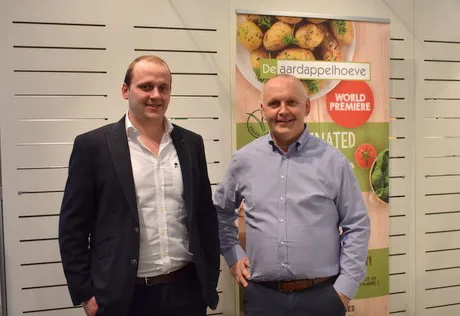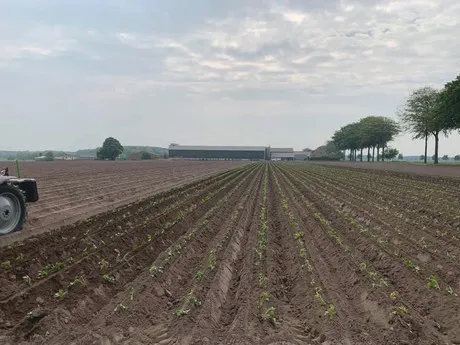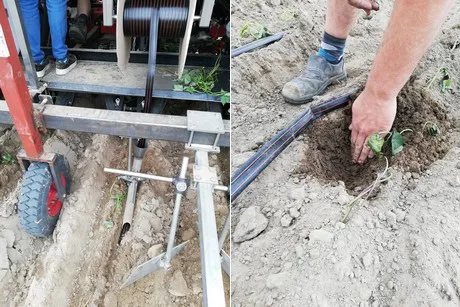“The imported potato season is in full swing. Spain, Portugal and Sicily are now in production. Cyrpus had a lower yield than normal this year, and the Israeli season has now finished. Demand and supply are well-balanced, everything arriving on the market has been sold in advance. As a result, prices are high, and it doesn’t look as if prices will drop considerably any time soon,” says Bart Nemegheer of De Aardappelhoeve. “The stocks of Belgian potatoes are completely empty. The old harvest is gone. Of the volumes still left, quality no longer meets requirements.”

Ruben and Bart Nemegheer
The exporters of southern countries anticipated the low yields of Belgium’s latest harvest, and they anticipated that demand for new potatoes would start early. “We had years when containers with first potatoes were shipped without destinations, but that won’t be the case this year. Everything has already been placed, and that takes the weight of the market. Yet we’ve noticed consumers becoming more and more sensitive to imported products. They prefer local products, but when we don’t have those, they have no choice but to switch to other origins,” Bart says. “The first potatoes with firm skins are expected early in July. That would be two weeks earlier than normally. This is the result of the warm days we had in February during planting.”

The Belgian potatoes have been planted.
Israel
Besides, the trader has seen a political aspect rearing its head during the import potato season every year. “Every year, we’re seeing fewer and fewer potatoes from Israel on supermarket shelves. Some organisations don’t want any trade done with Israel, because of the situation regarding the Palestinians. This is an issue that’s only becoming more important in Belgium, just like the climate movement.”
Sweet potatoes
“The sweet potato market is faced with major shortages. All of Europe is empty, we’re now working with American ones, and soon we’ll switch to South African product. The European production starts in August. Because demand for sweet potatoes experienced a considerable growth in recent years, we expanded our own production in order to be able to supply European sweet potatoes throughout the year, both conventional and organic. Demand for sweet potatoes is definitely expected to continue increasing, although I expect this increase will be less rapid than in recent years. But I’m convinced the sweet potato has become a standard in our diets,” Bart concludes.

Sweet potatoes need lots of water and that’s why drip irrigation is used to water them.
For more information: Bart Nemegheer
Bart Nemegheer
De Aardappelhoeve
Putterijstraat 7A
8700 Tielt (Belgium)
+32 (0)477 29 17 84
bart@deaardappelhoeve.be
www.deaardappelhoeve.be
